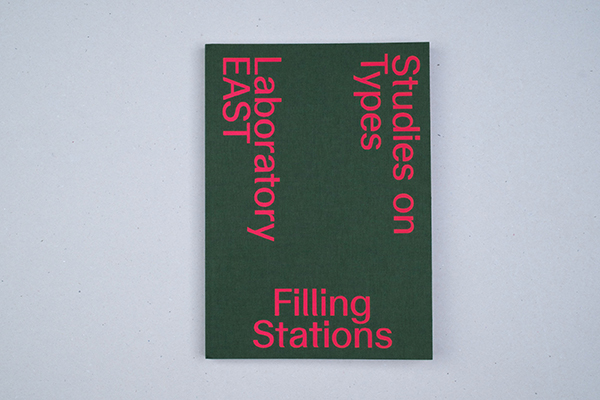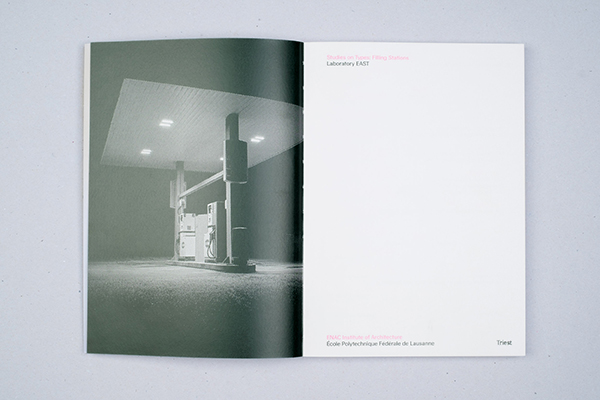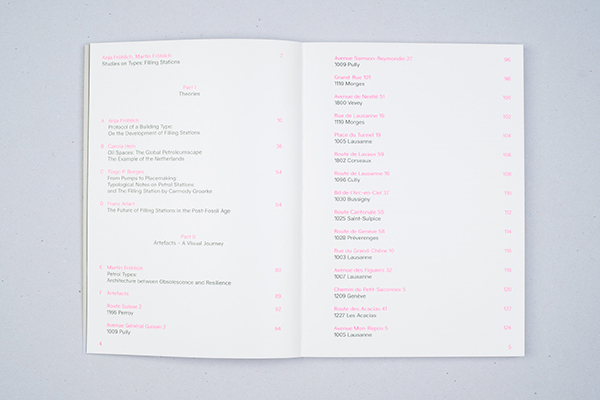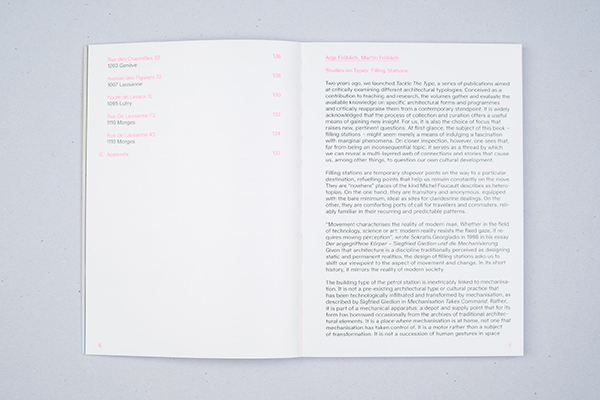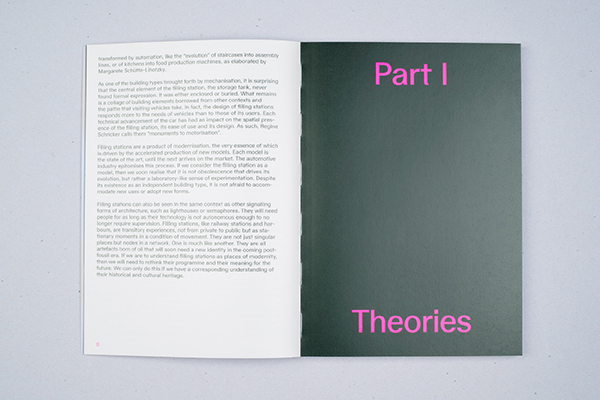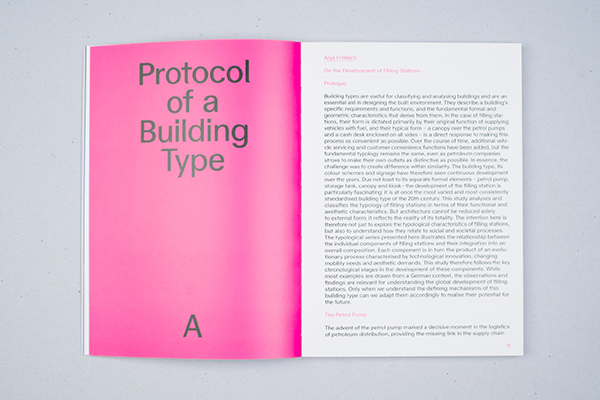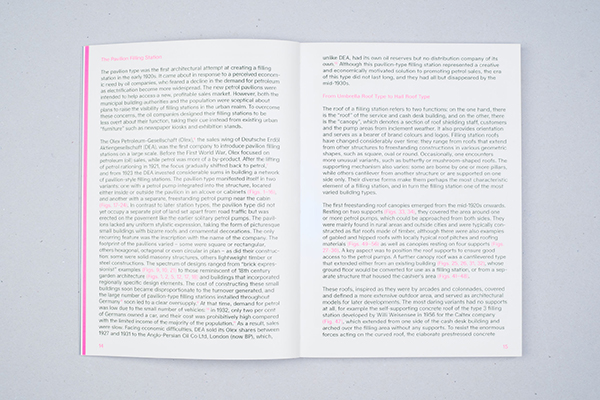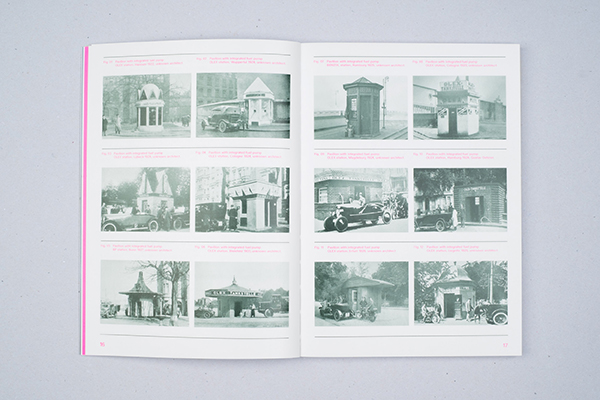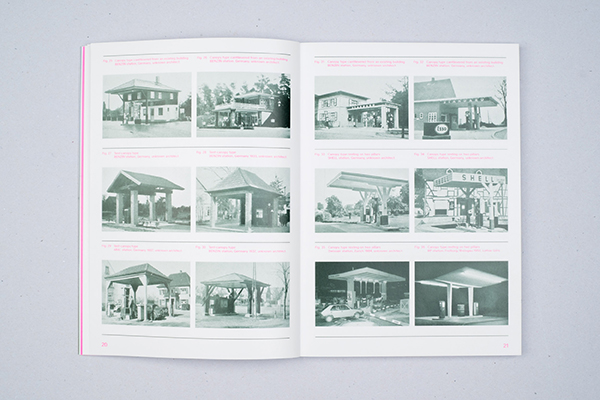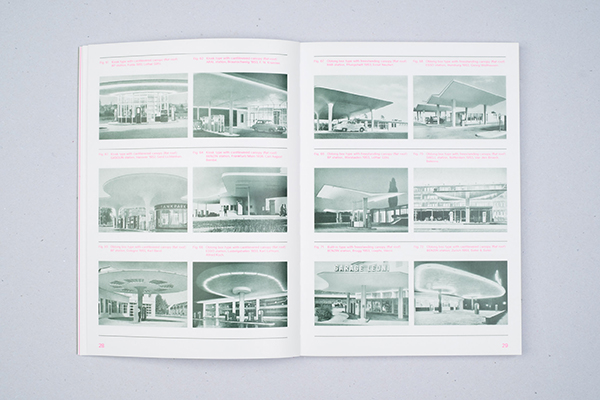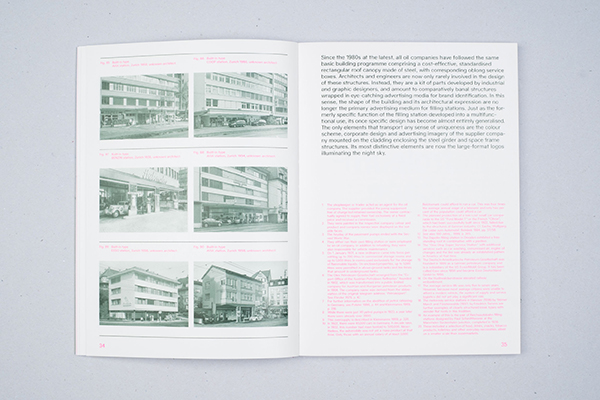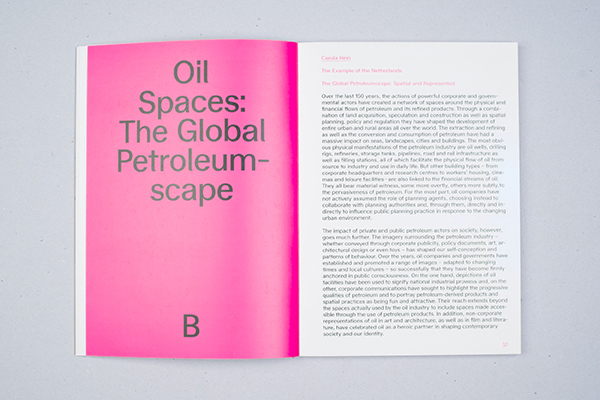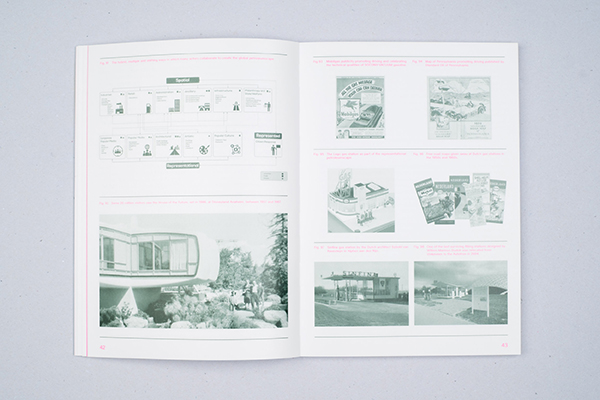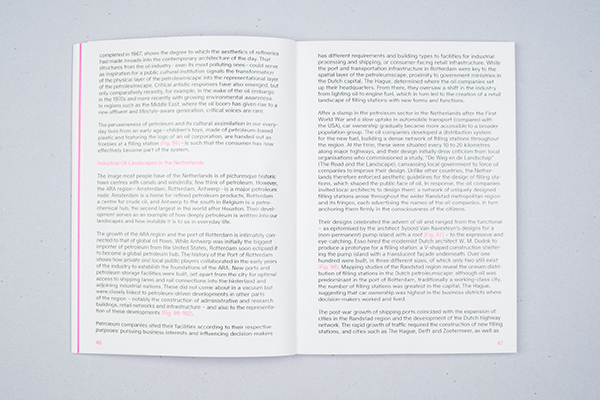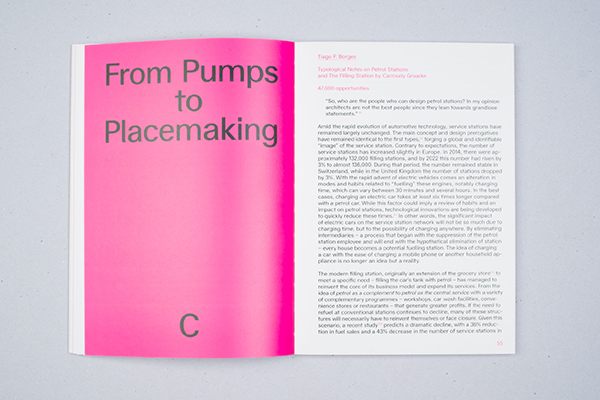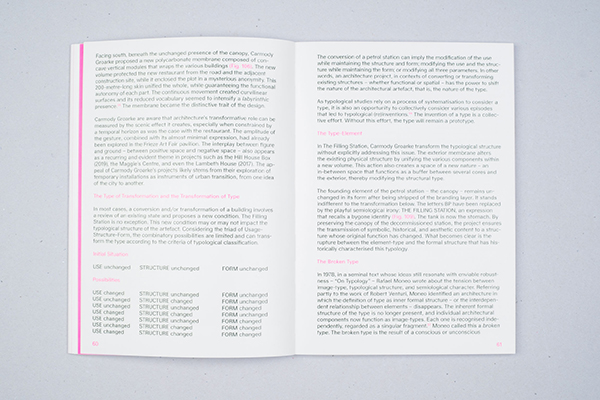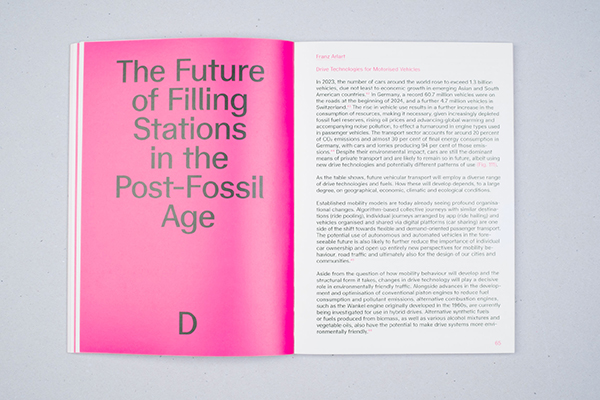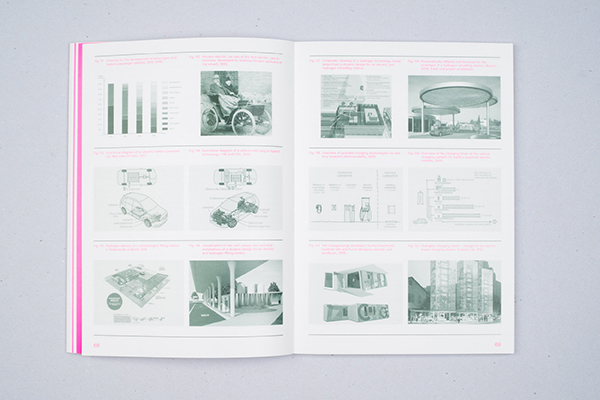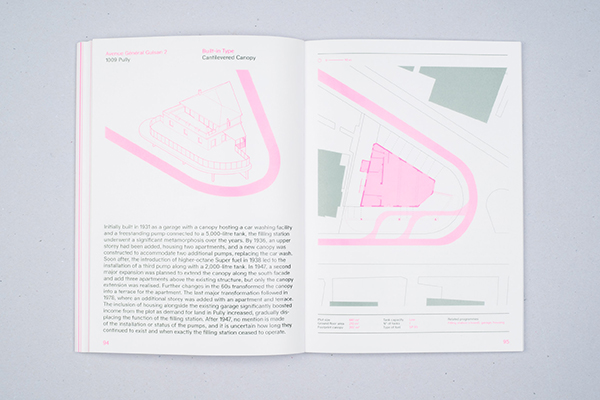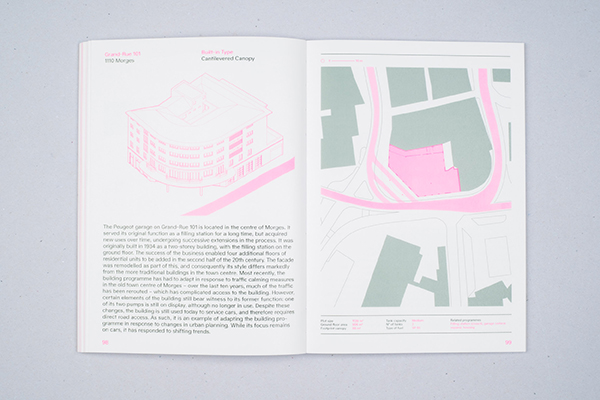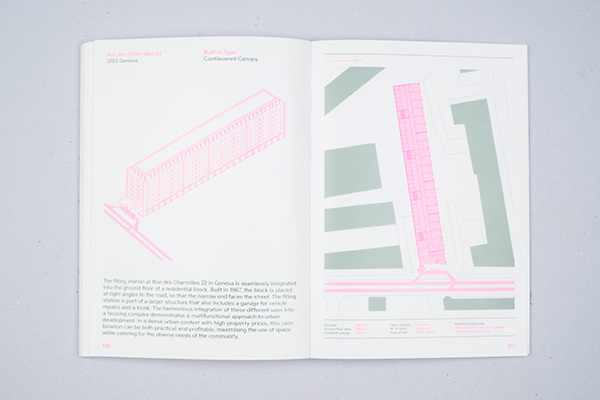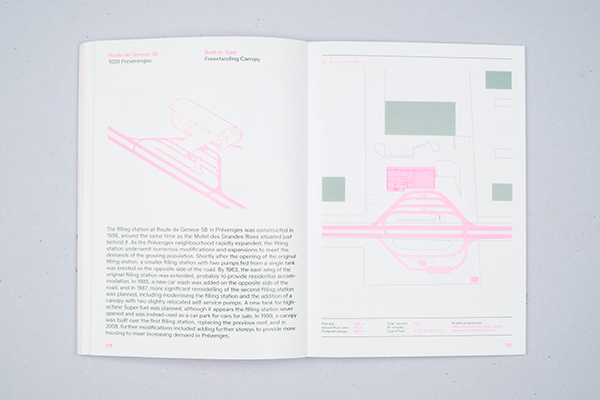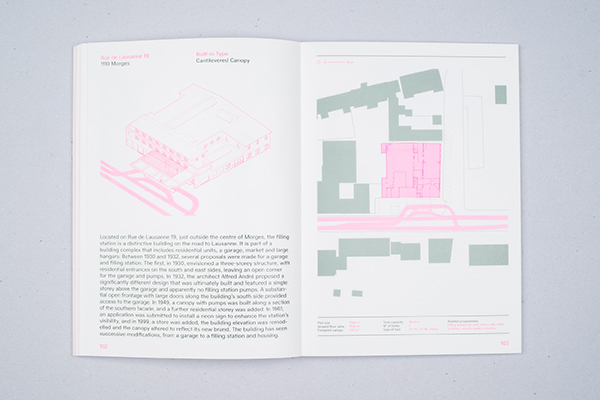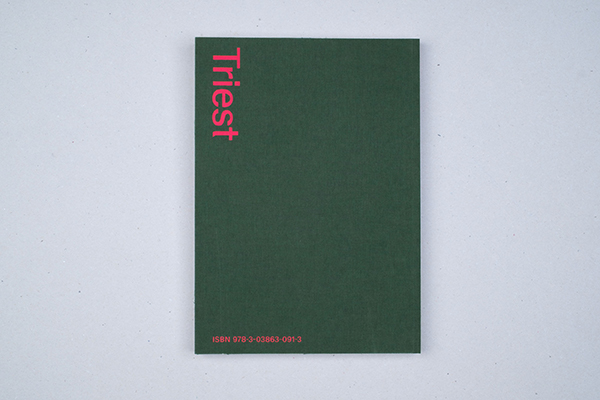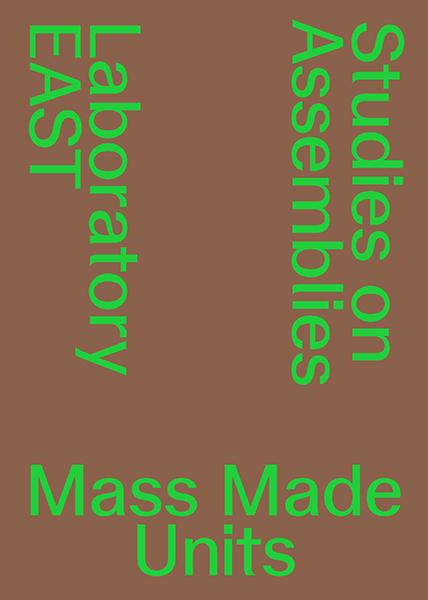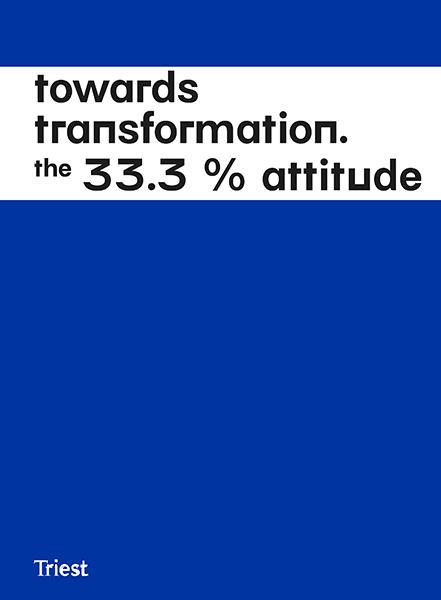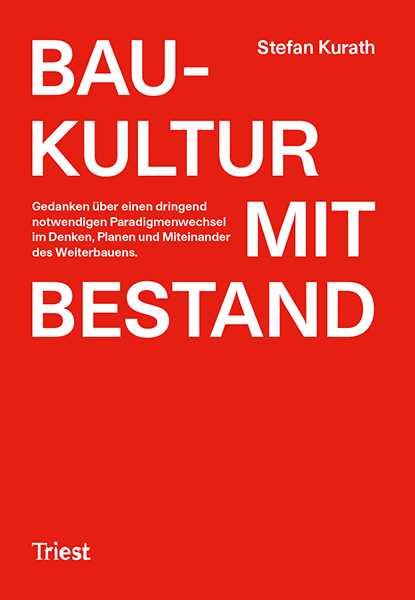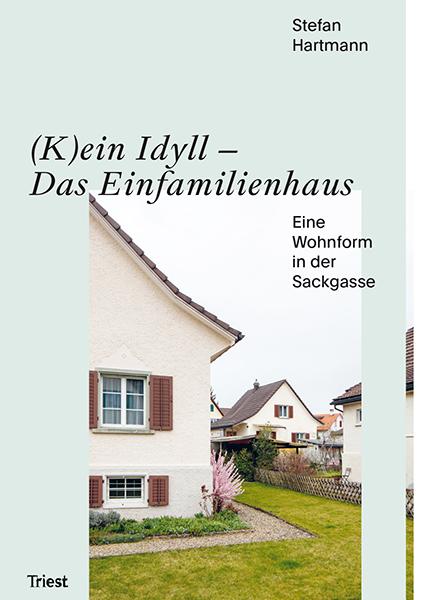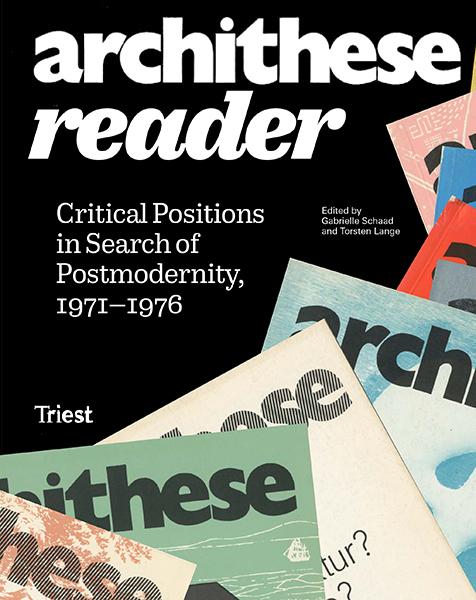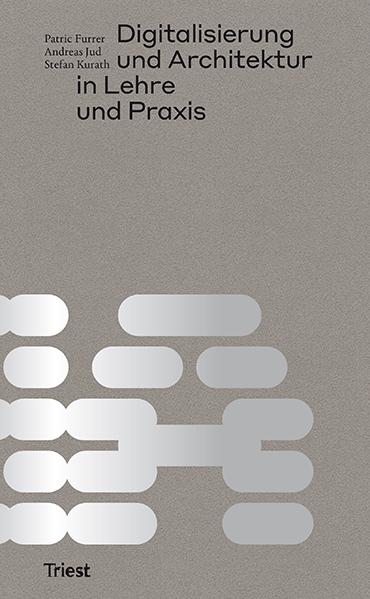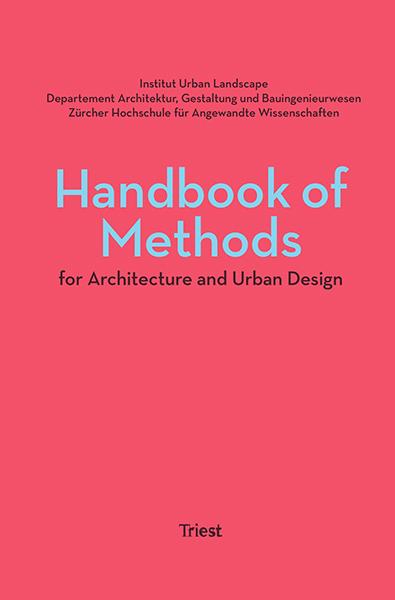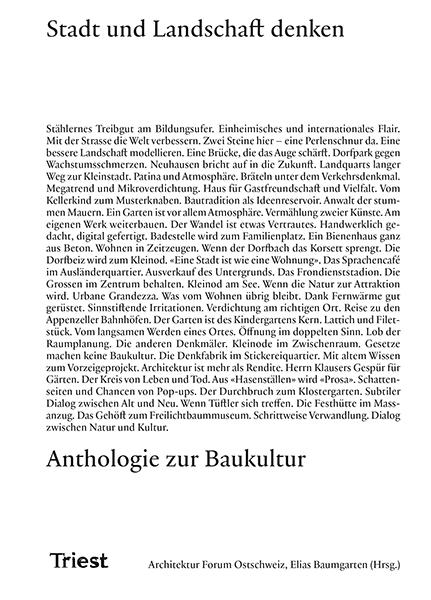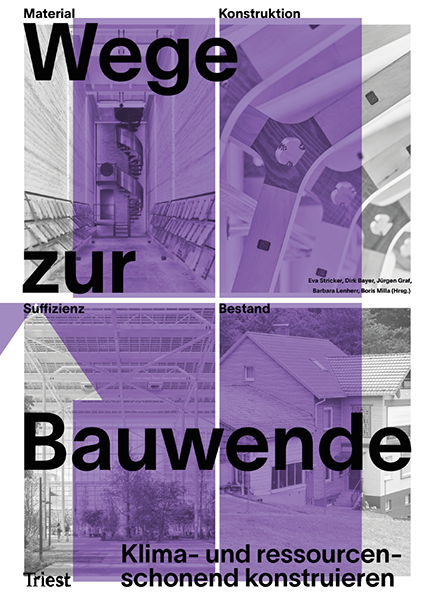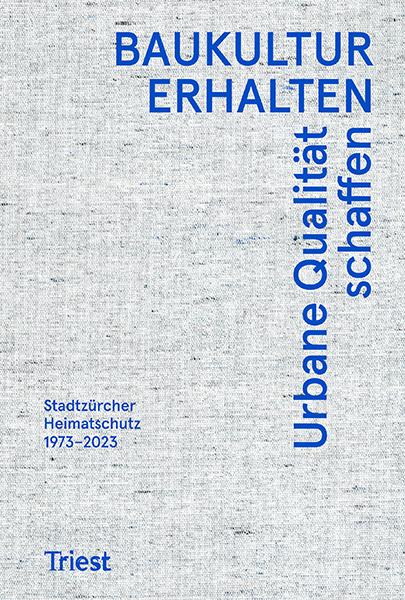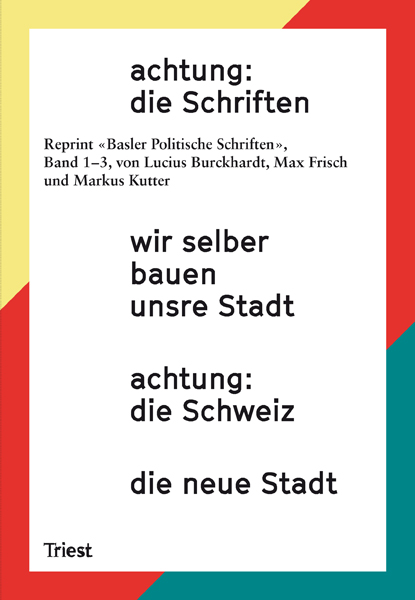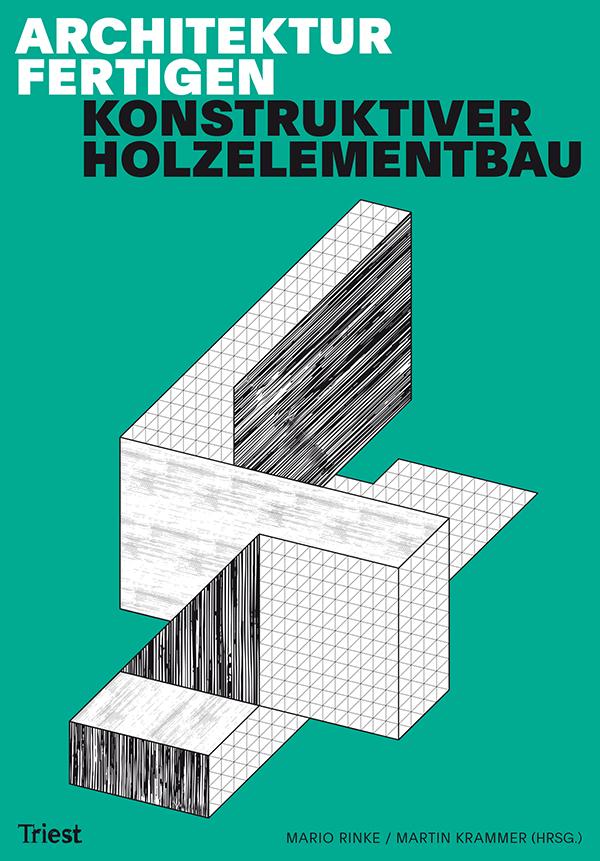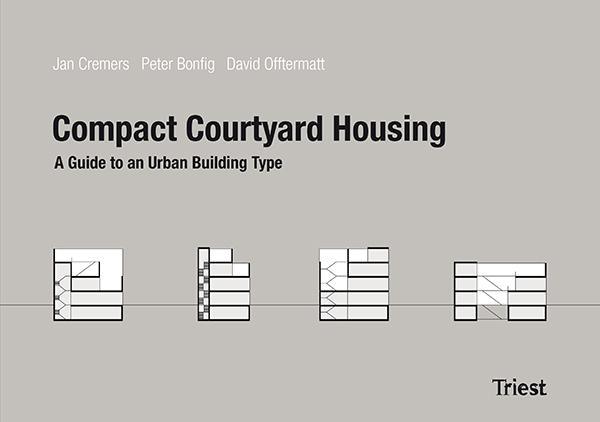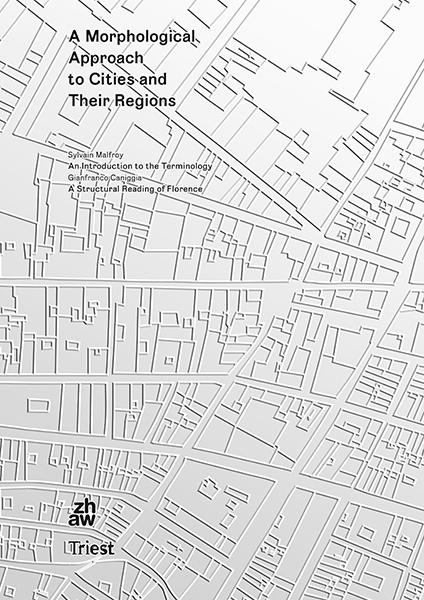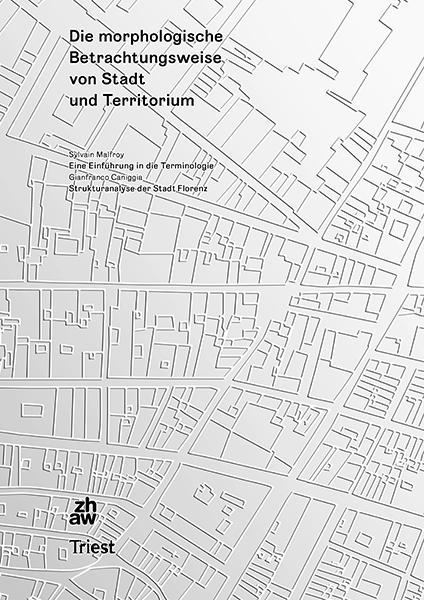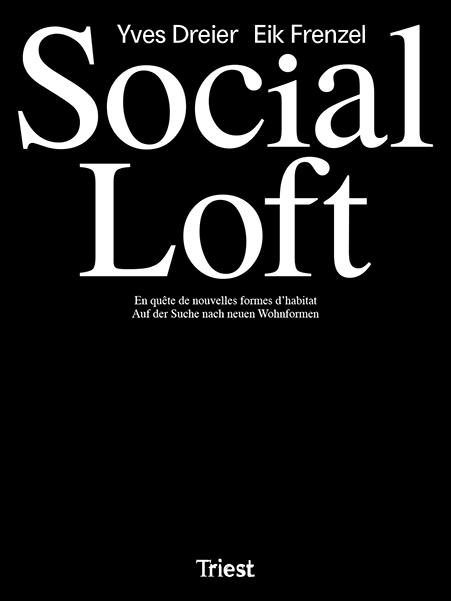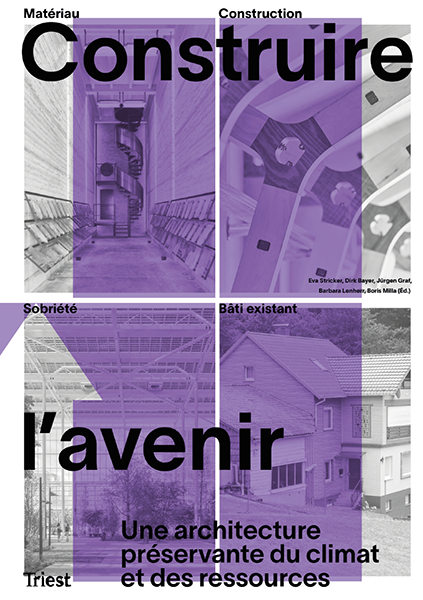EAST – Laboratory, EPFL Lausanne (eds.) [2]
Filling Stations
Studies on Types
Book design: Omnigroup, Lausanne
Euro [D] 29.–, Euro [A] 29.90
Available
ISBN
978-3-03863-091-3
• Conversion of infrastructure buildings using the example of petrol stations
• Petrol stations as active urban building blocks – case studies show design possibilities in an urban context
• Analysis of different building typologies and their potential for new utilisation concepts
The idea of converting and repurposing buildings is increasingly coming to the fore and with it the examination of architectural types and their potential.
This publication examines the architectural development of the petrol station building type, which is significantly influenced by changes in transport infrastructure, mobility, consumer behaviour, ecological awareness and the aesthetic zeitgeist. In city centres today, the facilities are often unused. The book invites to reflect on the future of petrol station architecture.
The examination with the thematic complex petrol station helps to understand its significance and role as part of the historical and cultural heritage and at the same time to find approaches that renegotiate the future of the typology.
The first part of the book focuses on the development of the architectural form of the building type over the course of history and its relationship to the changing functions and meanings. The petrol station is highlighted as one of the actors contributing to the concept of the so-called
"petroleumscape", using the Rotterdam context as an example. It also discusses how alternative fuels will influence the future design of petrol station buildings and how existing buildings could be adapted to new uses.
The second part of the book presents selected petrol stations in the region around Lake Geneva, analysed by students from the EAST design studio. These studies of exemplary projects offer an instructive overview of their functional and spatial contexts, which are exemplary for the building type itself.
"petroleumscape", using the Rotterdam context as an example. It also discusses how alternative fuels will influence the future design of petrol station buildings and how existing buildings could be adapted to new uses.
The second part of the book presents selected petrol stations in the region around Lake Geneva, analysed by students from the EAST design studio. These studies of exemplary projects offer an instructive overview of their functional and spatial contexts, which are exemplary for the building type itself.
About the editors
EAST – Laboratory of Elementary Architecture and Studies of Types, EPFL Lausanne
While the function of a building may change over time, its architecture remains. In lessons, EAST examines the aspects of construction that determine the use, morphology, and spatial structure of buildings. The history and change of these aspects serve as a basis for analyzing the design of new buildings as well as for reusing and transforming existing buildings. Urban settlements are thus a laboratory for architectural ideas, which are further developed using the technical means and spatial concepts of our time. The joint project work in the studio space facilitates a continuous discussion of different design approaches and helps the students to develop their own ideas.
While the function of a building may change over time, its architecture remains. In lessons, EAST examines the aspects of construction that determine the use, morphology, and spatial structure of buildings. The history and change of these aspects serve as a basis for analyzing the design of new buildings as well as for reusing and transforming existing buildings. Urban settlements are thus a laboratory for architectural ideas, which are further developed using the technical means and spatial concepts of our time. The joint project work in the studio space facilitates a continuous discussion of different design approaches and helps the students to develop their own ideas.
Team: Anja Fröhlich, Martin Fröhlich, Tiago P. Borges, Vanessa Pointet, Lara Monti, Clemens Waldhart
